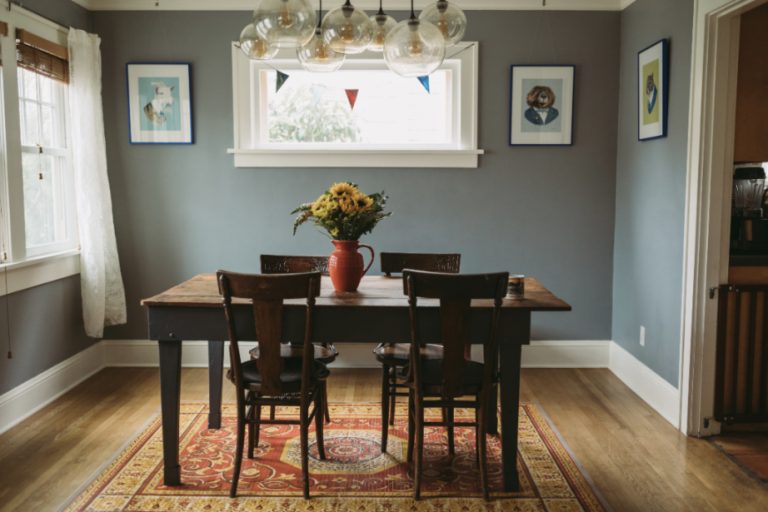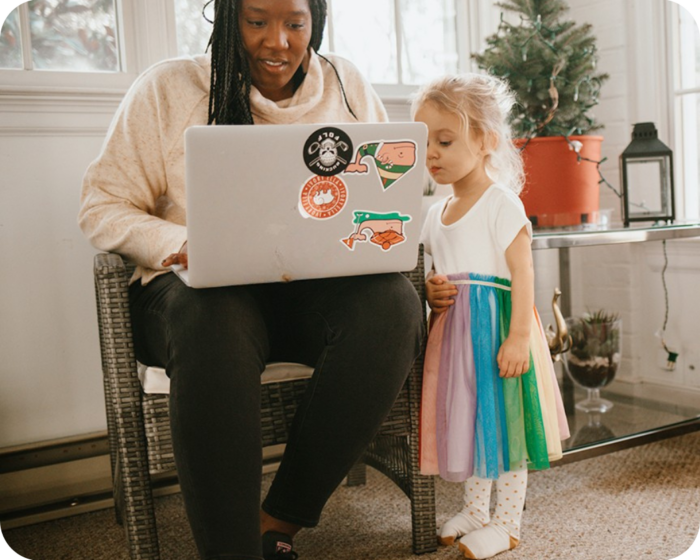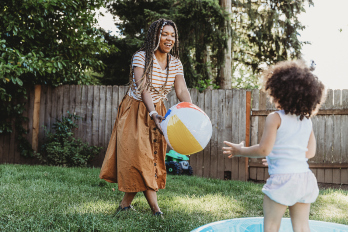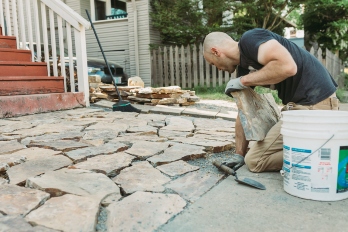“This one’s perfect! It has a swimming pool and a finished basement. Oh wait, it says ‘Foreclosure’ …”
If you’re seeing a bunch of homes for sale that appear to be good deals but are specified as foreclosures, you may want to consider proceeding with some caution.
While foreclosed homes can be opportunities to get more in a home for an affordable price, the process to buy one can be fairly complicated.
Below are some things to keep in mind if you’re considering buying a foreclosed home.
Quick note: Some of this info may sound like a bummer, but it doesn’t necessarily mean a foreclosed home you’re eyeing right now is definitely out of reach. These are just things to keep in mind so you’re aware and prepared!
1. You’re responsible for all repairs
If you’re buying a home from its previous owner, you may be able to negotiate some repairs and other things you want or need as part of your contract.
With a foreclosed property, you’re buying the home at auction or from the lender that foreclosed on it from its previous owner, usually as is. This means it’ll be in the same condition the former owners left it in and it may have suffered damage while it was vacant.
There are four types of foreclosure sales that you’ll see in the marketplace: short sales, auction sales, “HUD homes,” and real estate owned or “REO.”
Generally, short sales, HUD homes, and REO homes are offered through a broker and can be inspected inside and out prior to making an offer. Homes sold through auctions, however, are typically not accessible for interior viewing or inspection, meaning you may not be able to see one before you buy it.
2. It’s not a sure thing
The purchase contract you sign to buy a foreclosed property has the additional risk that it may be canceled for any reason, at any point up to closing. If someone shows up with a better offer, you could lose the house, plus any money you put toward an inspection and appraisal.
3. Repairs can increase property taxes
Let’s say you do put the time and money into fixing up a foreclosure — your local municipality may see the value you added to the home and raise your property taxes accordingly, meaning your monthly bills would get more expensive.
4. Public auctions are tricky
At the end of the foreclosure process, a home is put up for sale at a public auction.
These auctions typically attract seasoned investors who buy and flip homes for a living. They know the market and are more experienced at placing winning bids than, say, a first-time homebuyer.
Rather than competing with the professionals, you may be better off waiting to see if the lender buys back the property and markets it as REO.
5. You could take on the former owner’s debt
Remember, the previous owner of a foreclosed home was struggling financially. Any unpaid bills related to the home, from taxes to homeowner association fees, utilities, and even home equity lines of credit may have to be paid off by the purchaser.
Check with your real estate agent, attorney, and the title company to see if the home has any outstanding bills and whether you’d be responsible for paying them off.
6. Finding a mortgage may be tough
While shopping for a mortgage for a foreclosed home that needs heavy repairs, you may find it difficult to find a lender who’s willing to offer one.
If a home is in such poor condition that it doesn’t meet minimum property standards (as determined through an appraisal), it’ll prevent you from qualifying for Federal Housing Administration, the US Department of Veterans Affairs, and other low down payment programs. It may be difficult to get a plain-old conventional mortgage.
Meanwhile, if a property’s state of disrepair lowers its appraised value, the loan you get approved for might not cover enough of what the house will cost you to buy and fix up.
However, as we said earlier, don’t feel discouraged about your homebuying dream – it’s still possible! Here are some posts to help you feel encouraged:
- Can you buy a home with no money? You may not need as much as you think!
- Think outside the box: Check out these creative tips for how to afford to buy a home.




